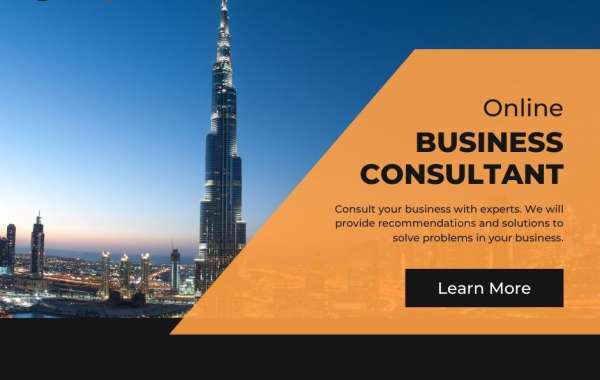Introduction
The United Arab Emirates (UAE) has long been a global magnet for entrepreneurs and investors seeking growth in a business-friendly, innovation-driven environment. One of the most attractive features of its economy is the Free Zone model — designated areas designed to attract foreign investment by offering unique benefits such as 100% ownership, tax exemptions, and simplified business regulations.
However, with over 45 Free Zones across the UAE, each specializing in specific industries and offering distinct advantages, it can be challenging for new entrepreneurs to decide which one best fits their business goals. Choosing the right Free Zone is a critical step that directly impacts licensing requirements, operating costs, scalability, and long-term success.
In this guide, we’ll provide a detailed comparison of various UAE Free Zones based on specific business activities, helping you make an informed decision that aligns with your company’s objectives and growth strategy.
Understanding the Concept of Free Zones and Freezone Business Setup
If you’re exploring a freezone business setup, it’s essential to first understand how these zones work and why they exist. Free Zones are designated economic areas within the UAE that allow foreign investors to establish and operate businesses under relaxed regulatory frameworks.
Unlike Mainland companies, which may require local sponsorship (depending on the business type), Free Zone companies offer full foreign ownership, zero personal and corporate tax, and full profit repatriation. Additionally, Free Zones are strategically designed to support specific industries — such as media, technology, healthcare, logistics, and manufacturing — with infrastructure and policies tailored to their needs.
The UAE’s Free Zones are not just about ease of doing business; they represent a larger national vision to diversify the economy, foster innovation, and position the country as a global hub for entrepreneurship and trade.
Whether you’re a startup, freelancer, or multinational corporation, the Free Zone model offers flexibility, speed, and scalability — but selecting the right one is the key to maximizing these advantages.
Key Benefits of a UAE Free Zone Setup
Before comparing Free Zones, let’s look at the core advantages that make Free Zone business setup such an attractive option:
100% Foreign Ownership: Unlike Mainland setups, Free Zone businesses allow full ownership without the need for a local partner.
Tax Exemptions: Most Free Zones offer 0% corporate and personal income tax for a specific period, often renewable.
Full Repatriation of Profits and Capital: Investors can freely transfer their earnings abroad.
Customs Benefits: Duty-free import and export within Free Zones.
Strategic Locations: Many are situated near airports, seaports, or city centers, ideal for logistics and trade.
Industry-Specific Support: Infrastructure and services tailored to specific business sectors.
Simplified Setup Process: Quick company formation procedures, often completed within days.
These advantages make Free Zone company formation one of the most convenient and rewarding methods to establish a presence in the UAE.
Comparing Major UAE Free Zones by Business Activity
Now, let’s break down the most prominent Free Zones based on the industries they best serve.
1. Technology and Innovation: Dubai Internet City (DIC) & Dubai Silicon Oasis (DSO)
Dubai Internet City (DIC) and Dubai Silicon Oasis (DSO) are among the leading Free Zones for IT, software development, e-commerce, and tech-driven startups.
Ideal For: Software companies, web development firms, IT consulting, e-commerce businesses, and tech entrepreneurs.
Key Advantages:
World-class infrastructure for digital operations.
Access to a large community of global tech companies.
Flexible office and co-working spaces.
Excellent connectivity to global markets.
Notable Tenants: Microsoft, Google, IBM, and Oracle.
Verdict: DIC and DSO are perfect for businesses aiming to establish credibility in the UAE’s growing digital economy.
2. Media and Creative Industries: Dubai Media City (DMC) & twofour54 Abu Dhabi
For entrepreneurs in content creation, advertising, film, and marketing, Dubai Media City (DMC) and twofour54 Abu Dhabi are ideal choices.
Ideal For: Advertising agencies, film production houses, publishing companies, influencers, and digital marketers.
Key Advantages:
Comprehensive media production facilities.
Networking with major international media brands.
Support for creative freelancers and startups.
Notable Tenants: CNN, BBC, and MBC.
Verdict: These zones provide unmatched networking opportunities and facilities for creative professionals.
3. Trading and Logistics: Jebel Ali Free Zone (JAFZA) & Sharjah Airport International Free Zone (SAIF Zone)
If your business revolves around import/export, warehousing, or distribution, JAFZA and SAIF Zone stand out as the top options.
Ideal For: Trading companies, logistics providers, and supply chain management firms.
Key Advantages:
Strategic proximity to Jebel Ali Port and major airports.
100% foreign ownership with customs exemptions.
Access to global shipping routes.
Advanced warehousing and storage facilities.
Notable Tenants: Maersk, DHL, and Unilever.
Verdict: JAFZA is the largest and most established logistics hub, while SAIF Zone is a cost-effective alternative for mid-sized operations.
4. Financial and Professional Services: Dubai International Financial Centre (DIFC) & Abu Dhabi Global Market (ADGM)
For companies in finance, banking, consulting, and insurance, DIFC and ADGM offer world-class regulatory frameworks.
Ideal For: Financial institutions, legal consultancies, auditing firms, and wealth management companies.
Key Advantages:
Independent legal system based on English common law.
Access to regional and global financial markets.
Strong governance and international credibility.
Notable Tenants: Barclays, HSBC, Deloitte, and PwC.
Verdict: DIFC is the financial heartbeat of Dubai, while ADGM in Abu Dhabi offers a quieter but equally prestigious business environment.
5. Manufacturing and Industrial Activities: Ras Al Khaimah Economic Zone (RAKEZ) & Ajman Free Zone (AFZ)
Manufacturing and heavy industries require space, resources, and cost-effective infrastructure — all of which are provided by RAKEZ and AFZ.
Ideal For: Manufacturers, industrial traders, and construction-related businesses.
Key Advantages:
Affordable land and facilities.
Access to skilled labor.
Proximity to major transport routes.
Cost-efficient licensing and renewal fees.
Notable Tenants: Global manufacturers and logistics operators.
Verdict: RAKEZ is ideal for large-scale manufacturing, while AFZ suits smaller industrial setups and SMEs.
6. Healthcare and Life Sciences: Dubai Healthcare City (DHCC)
The healthcare sector is one of the UAE’s fastest-growing industries, and Dubai Healthcare City is the region’s premier medical Free Zone.
Ideal For: Hospitals, clinics, pharmaceutical companies, and wellness centers.
Key Advantages:
Advanced medical infrastructure.
Access to skilled healthcare professionals.
Support for medical research and innovation.
Easy licensing for practitioners and facilities.
Verdict: DHCC is unmatched for healthcare-related ventures seeking a strong presence in the Middle East.
7. Education and Training: Dubai Knowledge Park (DKP) & Ras Al Khaimah Academic Zone
For businesses involved in training, education, and academic consultancy, DKP and RAK Academic Zone provide dedicated facilities.
Ideal For: Universities, training centers, and consultancy firms.
Key Advantages:
Academic licensing support.
Collaboration with global education brands.
Access to student and professional communities.
Notable Tenants: Middlesex University, University of Wollongong.
Verdict: DKP is best for education-oriented organizations seeking visibility in Dubai, while RAK Academic Zone offers a more affordable alternative.
Comparing Costs and Licensing Options
The cost of a Free Zone business setup varies depending on several factors:
License Type: Commercial, Industrial, or Professional licenses have different fee structures.
Office Space Requirements: Costs differ based on the size and location of your workspace.
Visa Quotas: The number of visas your company requires impacts the package price.
Additional Services: PRO services, renewals, and accounting can add to the total.
For startups, many Free Zones now offer flexi-desk packages that minimize costs while still meeting legal requirements. However, for medium and large enterprises, investing in a larger office or warehouse often yields greater operational efficiency and scalability.
How to Choose the Right Free Zone for Your Business
Here are key factors to consider when deciding which Free Zone fits your business model:
Industry Focus: Choose a zone aligned with your business activity (e.g., media in DMC, logistics in JAFZA).
Location: Proximity to ports or airports can be vital for trading companies.
Budget: Compare setup costs, visa fees, and renewal charges.
Scalability: Select a Free Zone that supports business expansion.
Visa Quota: Check how many employee visas are permitted per office size.
Legal Structure: Consider if you need an FZCO (Free Zone Company) or FZE (Free Zone Establishment).
Networking Potential: Some Free Zones offer stronger B2B networks and community support.
Consulting with an expert or a business setup consultant can help you evaluate all these elements and ensure you select the ideal location.
The Growing Importance of Free Zones in the UAE Economy
Free Zones have played a significant role in transforming the UAE into a global trade and investment hub. They account for nearly 40% of Dubai’s total trade and host thousands of international firms contributing billions to the national economy.
Moreover, as the UAE continues to diversify away from oil dependency, Free Zones remain at the heart of its economic vision — promoting innovation, digital transformation, and sustainable growth.
Final Thoughts
Choosing the right Free Zone for your specific business activity can make all the difference between a smooth start and future complications. With so many specialized zones across the UAE, the decision should be based on strategic alignment, operational needs, and long-term scalability.A freezone business setup offers incredible advantages—100% ownership, tax benefits, and simplified regulations—but only when done with careful planning and expert guidance. Whether you’re entering the tech industry, media production, trading, or manufacturing, there’s a Free Zone tailored to your goals.By understanding each zone’s focus and comparing their offerings, you can ensure your business not only starts successfully but thrives in the UAE’s competitive and dynamic landscape.








